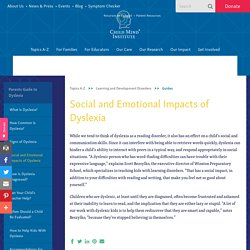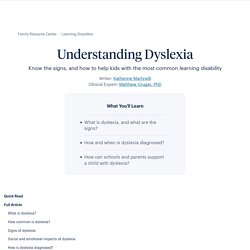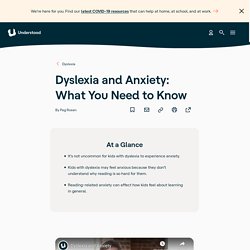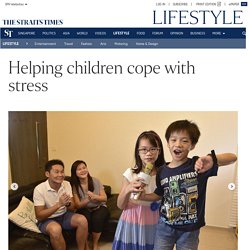

Social and Emotional Impacts of Dyslexia. While we tend to think of dyslexia as a reading disorder, it also has an effect on a child’s social and communication skills.

Since it can interfere with being able to retrieve words quickly, dyslexia can hinder a child’s ability to interact with peers in a typical way, and respond appropriately in social situations. “A dyslexic person who has word-finding difficulties can have trouble with their expressive language,” explains Scott Bezsylko, the executive director of Winston Preparatory School, which specializes in teaching kids with learning disorders. “That has a social impact, in addition to your difficulties with reading and writing, that make you feel not so good about yourself.”
Children who are dyslexic, at least until they are diagnosed, often become frustrated and ashamed at their inability to learn to read, and the implication that they are either lazy or stupid. Understanding Dyslexia and How to Help Kids Who Have It. Children each learn and develop at their own pace, and reading is no different from other skill building.

It’s common for kids to find reading challenging at one point or another. But if learning to read becomes an ongoing struggle that leaves a child falling behind his peers, it’s possible that he has a learning disorder known as dyslexia. What is dyslexia? Dyslexia is most commonly associated with trouble learning to read. It affects a child’s ability to recognize and manipulate the sounds in language.
Dyslexia is not a reflection of a child’s intelligence — in fact it’s defined as a gap between a student’s ability and achievement. What is Dyslexia. DAS is guided in its definition of Dyslexia by the Ministry of Education, Singapore in their November 2011 publication "Professional Practice Guidelines for the Psycho-educational Assessment and Placement of Students with Special Educational Needs". Dyslexia is a type of specific learning difficulty identifiable as a developmental difficulty of language learning and cognition1.
It is a learning difficulty that primarily affects the skills involved in accurate and fluent word reading and spelling. Characteristic features of dyslexia are difficulties in phonological awareness, verbal memory and processing speed. Co-occurring difficulties may be seen in aspects of language, motor co-ordination, mental calculation, concentration and personal organisation, but these are not, by themselves, markers of dyslexia2. An appropriate literacy programme should include the following components: phonemic awareness, phonics, fluency, vocabulary and comprehension3. 1 U.S. 2 Rose, J. (2009). Developmental Dyslexia. Dyslexia and Anxiety in Children. Kids know how important reading is.

They hear it from their parents and teachers starting at a very young age. So when kids with dyslexia struggle with that vital skill, it can create feelings of anxiety. In most cases, those feelings are passing and limited to situations that involve reading. That might be anything from reading a menu to taking notes for a book report. But sometimes, kids with dyslexia and other learning differences develop a bigger problem with anxiety.
Learn more about the link between anxiety and dyslexia, and ways to help your child. How Dyslexia Can Cause Stress and Anxious Feelings It’s not surprising that kids with dyslexia feel anxious at times. A child with dyslexia may have to go to the “easy shelf” when the class is picking out reading books. Kids with dyslexia often have fears about what might happen if they need to do something that involves reading. These negative emotions are understandable. Dyslexia Stress Anxiety Connection. Coping With Stress During Childhood and Adolescence. Helping children cope with stress, Lifestyle News. An international study reported last year suggests that Singapore students experience higher levels of anxiety than those from many other countries.

The study by the Organisation for Economic Cooperation and Development (OECD) polled 540,000 students from 72 countries and economies. It showed that 66 per cent of students across all OECD countries said they were worried about poor grades in school. Among Singapore students, it was 86 per cent. Ms Tan Wei Yin, 40, for one, is careful not to over-emphasise academic results with her nine-year-old son. "One way of easing stress is by not having too much expectation when it comes to the academic," says Ms Tan, an executive in the insurance industry.
But the demands of school impose pressure on her only child, Chee Tiong, as well as other school-going children. Two years ago, when Ms Tan's son was in Primary 1, she set him a target of completing one chapter of an assessment book every day, on top of his school homework. School-based Dyslexia Remediation (SDR) Programme. A heart for students with special needs.